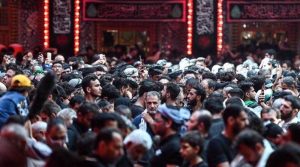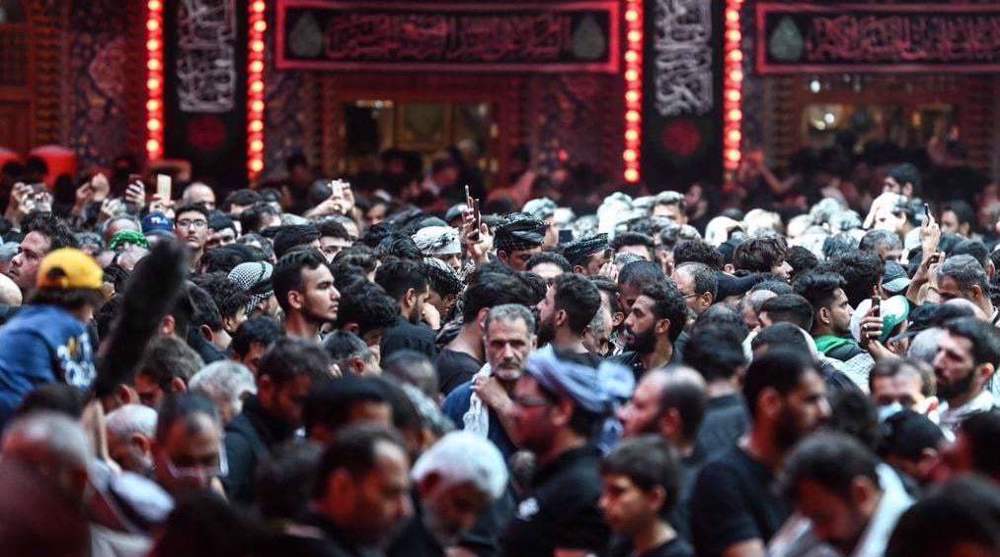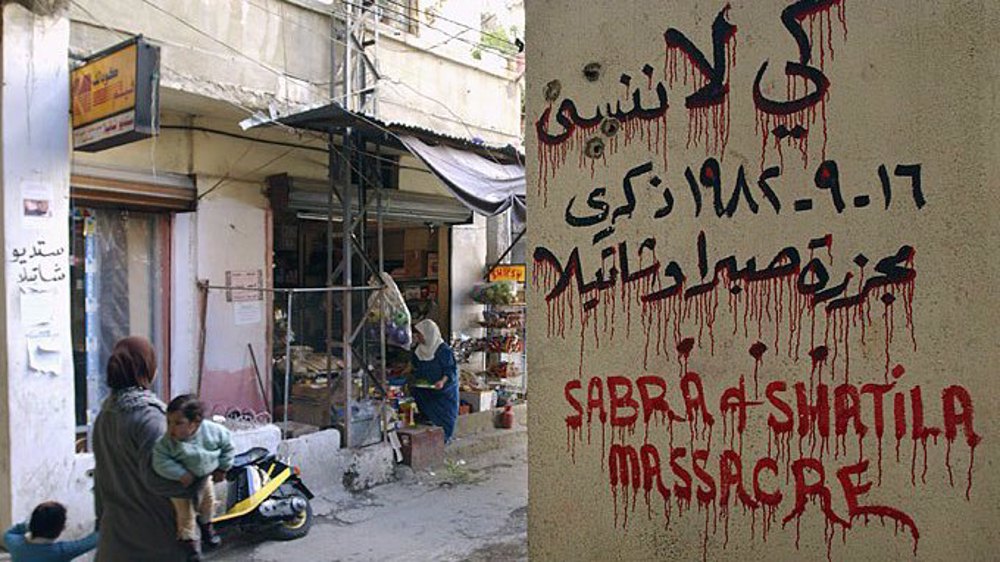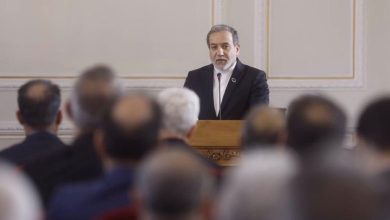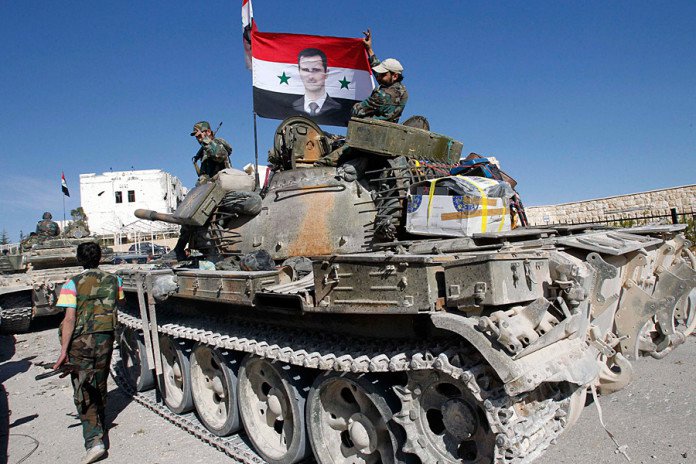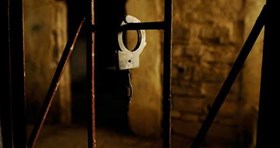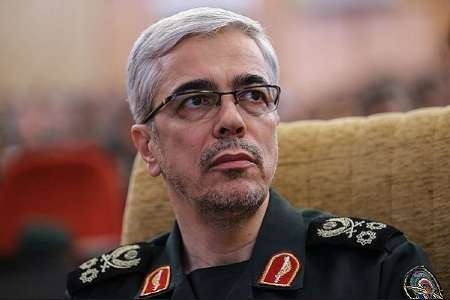Nasrallah lauds 20-million-man march for Arba’een in Iraq as ‘miracle’
The secretary general of the Lebanese Hezbollah resistance movement has hailed as a “miracle” the attendance of millions of Muslim pilgrims from across the world at the annual mourning rituals of Arba’een, which marks the 40th day after the martyrdom anniversary of Imam Hussein (AS), the third Shia Imam, in the holy Iraqi city of Karbala.
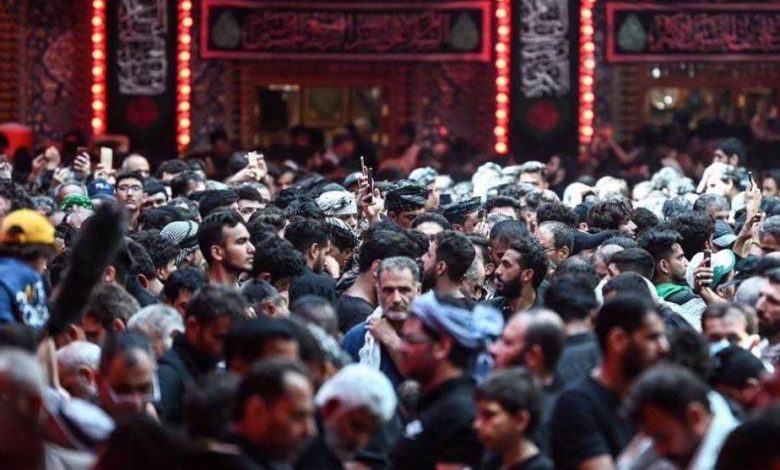
Sayyed Hassan Nasrallah made the remarks in a televised speech broadcast live from Lebanon’s eastern city of Baalbek on Saturday.
Nasrallah described the Arba’een procession in Iraq as a “unique ceremony” in terms of the size and number of people, and said the event which is participated by 20 millions of pilgrims is a “miracle.”
“Arba’een in Karbala this year is considered the greatest gathering in the world as the number of pilgrims who are in the holy city reaches 20 million,” the Hezbollah chief said.
“Throughout history, there is no gathering like the gathering of lovers of Imam Hussein (AS) in the holy city of Karbala, and this today is like a miracle. Twenty million pilgrims means 20 million hearts beating for the love of Imam Hussein (AS).”
Nasrallah also expressed his gratitude to Iraq’s entire political parties and factions, and appreciated the Iraqi people for their generosity and hospitality.
Millions of black-clad pilgrims gathered at Imam Hussein’s holy shrine in Karbala on Saturday to culminate a week-long procession in commemoration of the martyrdom anniversary of the Prophet Mohammad’s grandson, who was killed along with his companions during the battle of Karbala in 680 AD.
Men, women, teens and elders came together in the Iraqi city to pay tribute and renew their allegiance to Imam Hussein (AS), who is the all-time icon of fighting injustice, oppression and despotism.
The annual event, which is one of the largest religious congregations in the world, brings together a deluge of Imam Hussein’s lovers and devotees from various nationalities who undertake an 80-km walk between the holy cities of Najaf and Karbala.
The tradition, which attracts millions of people from across the world every year, is meant to sympathize with Imam Hussein (AS) on the pains he endured in the event of Karbala, where he and 72 of his companions were brutally slaughtered by Yazid’s army.
The ceremony is also fervently observed by Muslims in their own countries across the world.
‘Most heinous massacre in history of Arab-Israeli wars’
Elsewhere in his speech, the Hezbollah leader pointed to the 1982 massacre of thousands of Palestinian civilians at Sabra and Shatila refugee camps in the southern flank of the Lebanese capital city of Beirut.
“This massacre was not only against the Palestinians, but led to the martyrdom of 1,900 Lebanese and 3,500 Palestinian people,” Nasrallah said, adding, “The killing in Sabra and Shatila is the biggest and most heinous massacre in the history of Arab-Israeli wars, and the perpetrators escaped punishment.”
Still remembered as one of the most horrific crimes committed by Israel, the Sabra and Shatila massacre was carried out on September 16, 1982, when Christian Phalangist militias armed by the Tel Aviv regime stormed into the Palestinian refugee camps in southern Beirut and brutally killed up to 3,500 civilians, including many women and children.
On September 15, the Israeli military besieged Sabra and Shatila and had its tanks positioned to shell the camps before tasking some 1,500 Phalangist militiamen with “searching and mopping up the camps” a day later, which led to the killing of Palestinians during the next 43 hours.
The Israelis fired flares throughout the night to light up the killing field – thus allowing the militias to see their way through the narrow alleys of the camps.
Despite Israel’s attempts to conceal its involvement in the massacre, Ariel Sharon, the then minister for military affairs, was the key figure in the whole three-day operation, from ordering to shell Sabra and Shatila to unleashing Phalangist militiamen in the refugee camps.
